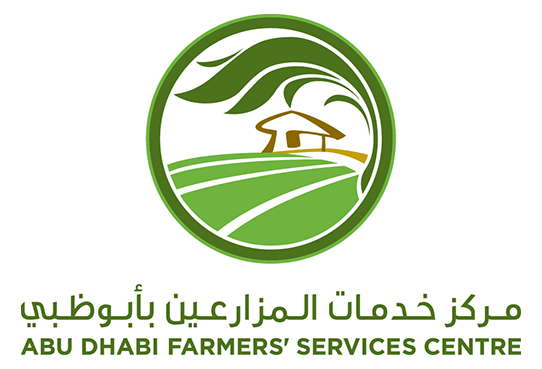Abu Dhabi: the new vegetable oasis
Dhafer Rashed Mohamed Al Qasemi, director of planning and development at the Abu Dhabi Farmer’s Services Center (ADFSC) explains the transformations in Abu Dhabi’s agriculture.
Around 10 years ago, government policies in Abu Dhabi began to change with the aim of farming more sustainably and protecting natural resources. Over the previous 45 years, local agriculture was encouraged by the nation’s founder, Sheikh Zayed bin Sultan, who started to encourage UAE Nationals to grow. Land was granted free of charge by the government and farmers were supported in different ways. They received agricultural inputs like seeds and fertilizers, for example. As for the farms’ infrastructure, levelling, fencing and well-drilling were provided. In addition, the government created the Agricultural Department, which organized subsidies for the farmers.
ADFSC to train farmers and support logistics
Founded in 2009, ADFSC has become the driver behind the changes made in Abu Dhabi’s agriculture. As a result, it has been possible to reduce direct subsidies. Today, ADSFC trains farmers and supports the logistics and marketing for their products. In the past, considerable volumes were produced but with insufficient regard for the quality and without preserving the water resources. In recent years, though, the focus has been on how to produce high quality crops and how to produce the products that are demanded by the market.
“Today, the farmers show interest and approval of the services provided by our organization,” said Al Qasemi.
Based on the market research conducted by ADFSC, an agreement has been signed with the farmers that specifies periods of delivery, quality of the product and the minimum guaranteed price. The objective is to provide market access for the right product at the right time in order to minimize the impact that market fluctuations have on farm owners. If a product achieves a higher price than the minimum guaranteed price, then ADFSC receives a 15% commission on the difference. If the market price is below the minimum guaranteed price, then ADFSC will pay the difference to the farmer.
“As a result of this policy, quality has been enhanced and currently 82% of the products sold are class 1,” explains Al Qasemi.
Locally grown with a reputation for quality and consistency
Abu Dhabi Farmers’ Services Centre also operates its own pack-house facilities and manages every step in the supply chain including harvesting, quality checks, grading, packaging, storing and transportation.
“In this way, the farmer can concentrate fully on planting and cultivation.”
This new policy from ADFSC has also encouraged a market-driven mentality compared to the past when the government bought everything that was produced.
“They have learned the benefit of harvesting and delivering at a specific time,” confirmed Al Qasemi.
The reputation of quality and consistency of locally produced crops has been steadily rising in recent years.
“Indeed, locally harvested produce has become a brand”.
The competitive advantage of vegetables grown in Abu Dhabi is that each local product can be traced to the farm where it was grown.
“Thus, food safety is guaranteed.”
Sustainable farming with 110 Global G.A.P. certified farmers
The preservation of natural resources is also an ongoing task for ADFSC. Certification by Global G.A.P. in food safety and sustainable farm practices has already been given to 110 Abu Dhabi farms. ADFSC has also started cooperating with the Swiss institute FIBIL, experts in organic food, to set up organic projects Abu Dhabi. Local production has achieved a market share of between 15 and 20% depending on the crop, the main varieties produced being cucumbers, tomatoes and capsicums. ADFSC sells the products directly to wholesalers and retailers, with about 50% of the volume delivered to Dubai, the UAE’s distribution hub.



